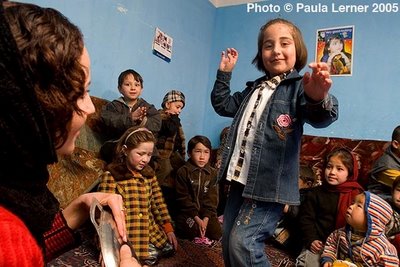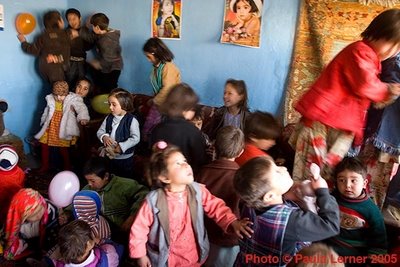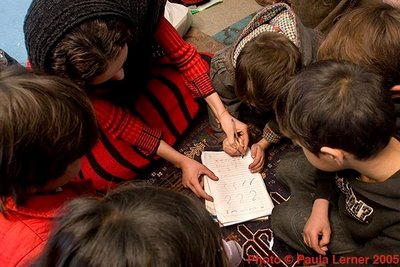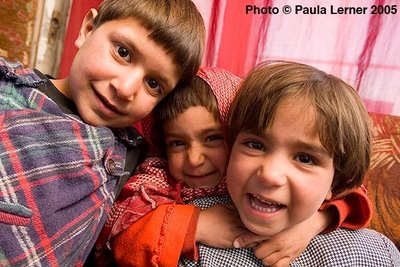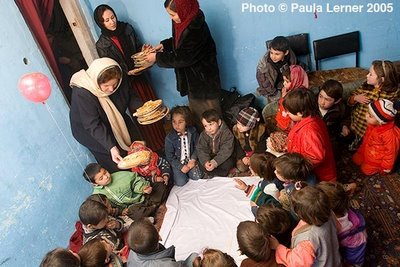A WOMAN’S DREAM – A NATION’S FUTURE

What if you could affect the future? Change the course of a nation? That’s just what one visionary woman in Kabul, Afghanistan is hoping to do.
In her 34 years, Habiba Rafhat (above in white scarf) has seen much change in her country. Civil war, Soviet invasion and domination, oppressive Taliban rule. The one thing she hasn’t seen much of is peace. One needn’t look any farther than the headlines in the daily news to see that peace in Afghanistan is a precious commodity. A commodity Habiba and many other Afghans long for.
Habiba isn’t content to watch and wait for peace to come, though. She is striving to secure it through the business world. For years, she enjoyed a career as owner of a successful handicraft company but found it wasn’t enough to just help her husband ensure a positive future for their family. She longed to ensure a positive future for all the families of Afghanistan.
A mother of 7, Habiba recognizes that children are the future of Afghanistan. Her generation, as with too many others that came before her, has been fashioned by war. She wants something better for her children, for all Afghan children. She wants a foundation of peace upon which to build generations dedicated to making Afghanistan a tranquil, prosperous nation, free from the curse of destructive violence.
With this desire driving her, Habiba decided to set aside her business in 2005 and open a day care center where she nurtures as many as 50 youngsters in 2 rooms of a rented building. A great start and rewarding, yes, but still she dreams of doing much more. She wants to transform the lives of hundreds of children in dozens of classrooms.
The reforms of recent years have created many opportunities for women in Afghanistan and, as a result, an increasing demand for childcare. Habiba doesn’t want to just meet demand, she desires to give her people excellence in education. Her ground breaking child development center will offer a curriculum based on western teaching methods, designed specifically for her by veteran educators and child development experts who bring more than 40 years combined experience to the project. This, coupled with Habiba’s indomitable spirit and enthusiasm, lends well to ensured success.
Donate here to help build Habiba's Day Care Center.


